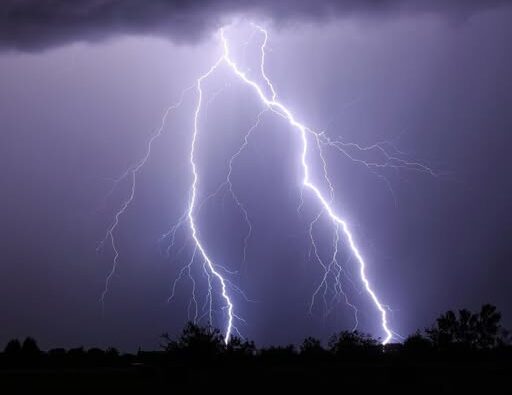The Gamma-Ray & Lightning
For the first time ever, scientists have definitively linked two puzzling gamma-ray events inside thunderclouds — gamma-ray glows and terrestrial gamma-ray flashes (TGFs) — with a lightning strike, suggesting these high-energy phenomena might play a direct role in triggering lightning itself.

A Gamma-Ray Glow
The discovery occurred during a winter storm over Kanazawa, Japan, where monitors from the GROWTH experiment recorded all three events in real-time: a gamma-ray glow (a weak, minute-long burst), a TGF (a brief, intense blast), and a lightning strike — all at the same location and moment. Remarkably, the gamma-ray glow vanished the instant lightning struck, providing the first unequivocal sea-level detection of such a connection.
This Rare Triple Detection Suggest
While gamma-ray glows have been theorized to result from electrons interacting with atmospheric nitrogen, the precise relationship between them and lightning has remained elusive. This rare triple detection suggests that gamma-ray activity might actually contribute to triggering lightning under the right conditions.
Predict Storms
The findings could eventually revolutionize how we predict storms. With more radiation sensors, scientists hope to forecast lightning within 10 minutes and 2 kilometers of occurrence — a potential game-changer for weather safety.
RESEARCH PAPER
Yuuki Wada et al., “Gamma-ray glow preceding downward terrestrial gamma-ray flash”, Nature Communications
